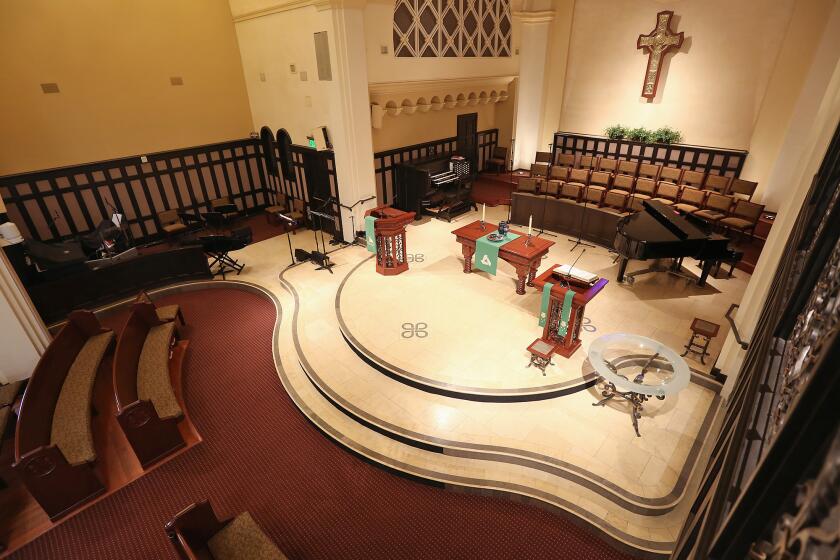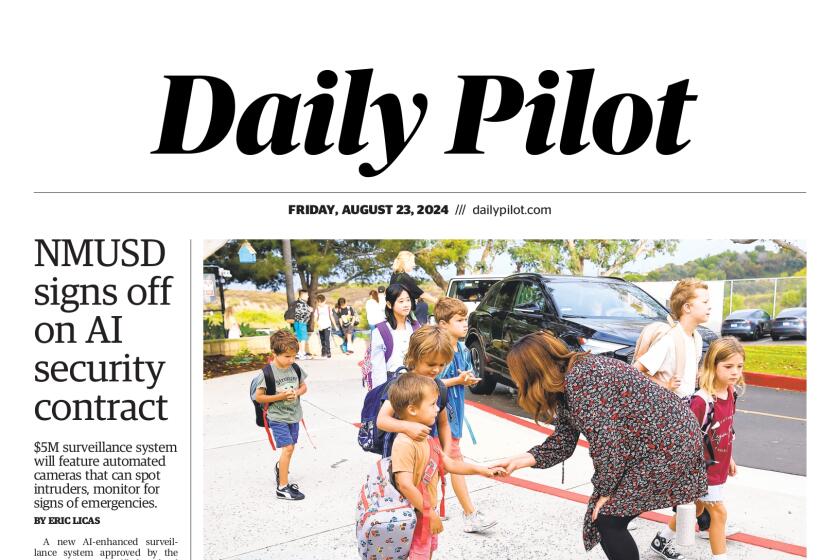Woman looks for answers on aging mother’s care
Ellen McCarty
HUNTINGTON BEACH -- Mary Spadoni playfully patted her mother’s nose, and
the 89-year-old Alzheimer’s patient looked up from her wheelchair and
smiled at Spadoni.
Ann Stone can’t speak, but her reactions to her daughter’s attention tell
a story of their own.
“She’s as cute as a button,” Spadoni said, admiring her mother’s face,
topped with a straw hat. “But she’s one tough old lady.”
It’s been a tough month for both of them.
On Aug. 27, Spadoni received a letter from the Adult Day Services of
Orange County announcing that, after providing Stone a decade of day
care, the facility will “discharge” her Sept. 30 because of “increasing
care needs.”
On Sunday, Spadoni and dozens of Ann’s friends and family responded to
the letter by demonstrating at the facility’s open house in Huntington
Beach.
Marching with protest signs reading “Right is Right, Fair is Fair, Ann
Belongs in this Day Care,” Spadoni hoped to raise awareness about the
mishandling of her mother.
“She just sits in her wheelchair and laughs at ‘I Love Lucy,’ ” Spadoni
said. “How can she be any trouble for the center?”
Facility officials, however, said it would be wrong to keep Stone at day
care.
Licensing laws require day care centers to release patients who need
constant medical attention, said the facility’s executive director, Dr.
Cordula Dick-Muehlke.
“It would be irresponsible if we kept a patient we weren’t able to care
for,” she added.
It’s a complex matter, said Linda Scheck, executive director of the
Alzheimer’s Association of Orange County, who attended Sunday’s open
house.
“Adult day-care centers are a boon for working people,” she said.
“Alzheimer’s isn’t a medical condition. Most of the time, they don’t need
nursing attention. They just need to be watched to make sure they don’t
hurt themselves.”
As the disease takes over the brain, shutting down a patient’s memory,
judgment and eventually bodily functions, caretakers then face “a gray
area,” she said, where they must decide when to refer a patient to
full-time medical care.
In the final stages of the disease, the patient is released from day care
and the family has to face the disease alone, or trust overextended
nursing homes.
“Nursing homes used to be a place where people went to recover,” Scheck
said. “Now patients go there to die, and the nursing home industry has to
care for more and more, sicker and sicker patients on a tight budget.”
The staffs have very high turnover and they are paid only minimum wage,
she said.
Of the 40,000 Alzheimer’s patients in Orange County, Scheck said about
30% of them require expensive, 24-hour care.
Spadoni has spent $80,000 over the last 10 years to care for her mother.
This year, she joined Medi-Cal to cover the expenses. Once her mother
leaves day care, however, Spadoni said she will be forced to quit her job
and refinance her house to take care of her mother at home or send her to
a federally funded nursing home, something she vowed years ago she would
never do.
Two months ago, Spadoni said she met with Adult Day Services officials,
who agreed to keep her mother at the facility as long as Stone’s
condition did not significantly decline.
Although Spadoni said she noticed no changes in her mother’s health,
officials said in the discharge letter that “Ann is exhibiting complex
physical limitations, such as ... difficulty swallowing, and drooling.”
Spadoni attempted to view her mother’s medical records Tuesday to find
out why her mother needs 24-hour medical attention, but said officials at
the day-care facility denied her access -- a move that fueled her anger.
“It’s outrageous how they’re treating my mother,” she said, wiping away
tears as she sat in the living room of her Costa Mesa home. “They’ve
described my mother in fund-raising letters and brought her to board of
education meetings to inspire support for their facility. Now they are
kicking her out. It’s devastating to think about how this will change her
life and mine.”
The executive director of Adult Day Service, Dick-Muehlke, shed tears of
her own during a phone interview, and said she told Spadoni that she
would consult a lawyer about the records and get back to her within 24
hours.
“I’ve never had anything like this happen in my five years as director,”
she said. “I’m committed to caring for cognitively impaired patients, and
I’m very sad that this has developed into a conflict with the family.”
She said she understands Spadoni’s resistance to the change. Before the
demonstration, Dick-Muehlke offered to cover the cost to hire an
independent doctor to evaluate Stone’s condition, but Spadoni said didn’t
accept it. She said she wants to see her mother’s medical records herself
first, and she’s hired a lawyer to help her navigate the process.
“I love the Adult Day Services, but I have to protect my mother’s
rights,” she said.
“I don’t know if she has 10 minutes left or a year,” Spadoni said.
All the latest on Orange County from Orange County.
Get our free TimesOC newsletter.
You may occasionally receive promotional content from the Daily Pilot.



